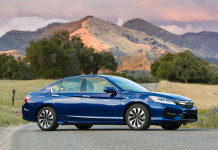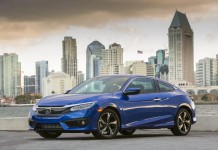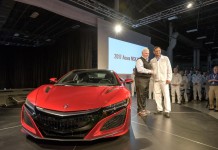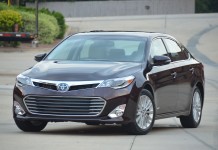Japanese automaker Honda on Wednesday recalled more than 430,000 vehicles worldwide, mostly in North America, to fix defective airbags that can blow up and injure or kill occupants.
The recall, which also covers Japan, Mexico, Taiwan and Australia, expands on previous recalls since 2008 of more than half a million vehicles over the same defect.
Japan’s second largest automaker said the defective air bag inflators could rupture, “resulting in metal fragments passing through the airbag cushion material and possibly causing injury or fatality to vehicle occupants”.
It said it knew of 12 incidents involving the defect and one fatality, but added that there had been no new reports since last year.
The expanded recall of 437,763 vehicles worldwide covers models made in 2001 and 2002 — including 378,758 US vehicles and 41,685 in Canada.
The affected models are the Honda Accord, Civic, TL, CR-V, Odyssey, Pilot and CL in North America and the Inspire, Saber and Lagreat models sold in Japan, the Tokyo-based company said.
“We have concluded that we cannot be completely certain that the driver’s airbag inflator in the vehicles being added to the recall at this time will perform as designed,” Honda said a statement.
The expansion is the third the company has made over the airbag problem, bringing the total number of cars affected to more than 900,000.
An initial recall announced in November 2008 affected just under 4,000 of the 2001 Accords and Civics in the United States and 218 cars in Canada.
After two more incidents involving cars not included in the original recall, the company expanded the recall in July 2009 to include an additional 440,000 model-year 2001 and 2002 Accord, Civic and certain 2002 Acura TL vehicles.
It also recalled an additional 49,452 vehicles in Canada.
The latest recall includes 9,227 vehicles in Mexico, 1,361 in Taiwan and 703 units in Australia, Honda said.
Last month Honda announced a global recall of some 646,000 Fit/Jazz and City cars, after receiving several reports of fire breaking out in the models’ power-window switches.








